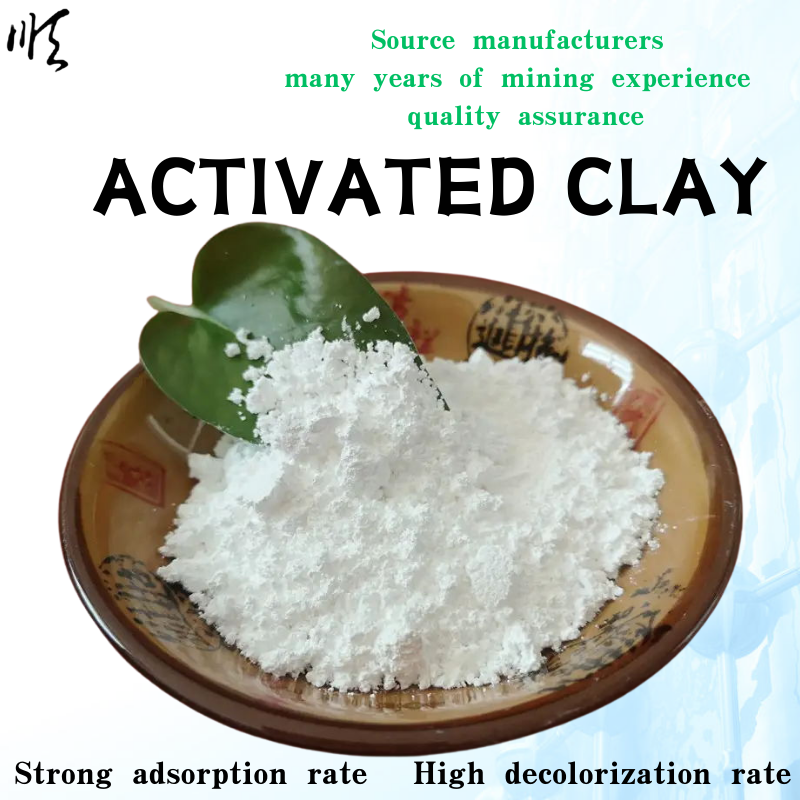
Properties and Applications of Hydrated Bentonite in Various Industries
Hydrated Bentonite Properties, Applications, and Benefits
Bentonite is a naturally occurring clay formed from volcanic ash that has undergone significant chemical changes over thousands of years. The term hydrated bentonite specifically refers to bentonite clay that has absorbed water, resulting in a unique swollen and gel-like texture. This property makes hydrated bentonite extremely versatile and useful in various applications ranging from industrial to environmental. This article will explore the characteristics, uses, and benefits of hydrated bentonite.
Properties of Hydrated Bentonite
Hydrated bentonite exhibits distinct physical and chemical properties that contribute to its wide-ranging applications. Its notable features include high plasticity, swelling capacity, and the ability to form stable suspensions in water. When hydrated, bentonite can increase in volume up to several times its dry weight, a property known as swelling. This expansion capability is due to the unique layers of the clay minerals, primarily montmorillonite, which can absorb and hold water between their layers.
Chemically, hydrated bentonite exhibits strong adsorption properties, meaning it can attract and hold various ions and molecules. This characteristic makes it an effective agent for binding and immobilizing contaminants, making it invaluable in environmental remediation projects. Furthermore, it possesses excellent thixotropic properties, meaning it can change from a gel to a liquid state under mechanical stress and return to a solid state once the stress is removed.
Applications of Hydrated Bentonite
The applications of hydrated bentonite are diverse and can be categorized into several key industries
1. Construction and Civil Engineering Hydrated bentonite is frequently used as a sealing material in various construction projects, including landfills, dams, and tunnels. Its swelling property allows it to fill cracks and gaps, effectively preventing water infiltration and ensuring structural integrity.
2. Drilling Fluids In the oil and gas industry, hydrated bentonite serves as a crucial component of drilling muds. It provides viscosity and stability to the fluid, helping to cool and lubricate the drill bit while also transporting cuttings to the surface. Its ability to form a filter cake on the borehole walls helps prevent fluid loss into the surrounding rock formations.
hydrated bentonite

3. Environmental Remediation Hydrated bentonite is widely used in environmental applications, particularly in the containment and remediation of hazardous waste sites. Its adsorption capacity helps to bind heavy metals, organic pollutants, and hazardous materials, reducing their bioavailability and potential harm to the environment.
4. Pet Care Products Bentonite is also utilized in the production of clumping cat litter. When hydrated, the clay clumps together upon contact with moisture, making it easier to remove waste while controlling odors effectively.
5. Food Industry In the food sector, hydrated bentonite is employed as a clarifying agent, particularly in the production of wine, juice, and vinegar. It helps to remove impurities and enhance the overall quality of the product.
Benefits of Hydrated Bentonite
The benefits of using hydrated bentonite are numerous. Its high swelling capacity ensures excellent sealing and containment capabilities in construction and environmental applications. The ability to form stable suspensions makes it ideal for various industrial processes. Moreover, its natural origin and non-toxic characteristics make hydrated bentonite an environmentally friendly choice compared to synthetic alternatives.
In addition to its practical applications, hydrated bentonite is cost-effective. Its widespread availability and low processing costs contribute to its economic viability across multiple industries. The low environmental impact of using bentonite products further supports its growing popularity as industries seek sustainable alternatives.
Conclusion
Hydrated bentonite is a remarkable material with a wide array of properties that lend themselves to various applications. Its versatility in construction, drilling, environmental remediation, and even in consumer products showcases its importance across industries. As the world increasingly focuses on sustainability and environmental protection, the demand for natural solutions like hydrated bentonite is likely to grow. Thus, understanding and utilizing this clay's potential will be crucial for industries moving forward.
Share
-
Natural Premium Bentonite Cat Litter - Superior ClumpingNewsJul.31,2025
-
Premium Resin Coated Sand - High Heat Resistance CastingNewsJul.31,2025
-
High Quality Silicon Carbide Grit for Abrasive ApplicationsNewsJul.30,2025
-
High-Quality Ceramsite for Plants & Gardening | Lightweight PebblesNewsJul.29,2025
-
Premium Burgundy Glass Marbles for Vases & Shooter GamesNewsJul.29,2025
-
High Purity Quartz Sand for Industrial and Ground ApplicationsNewsJul.29,2025






